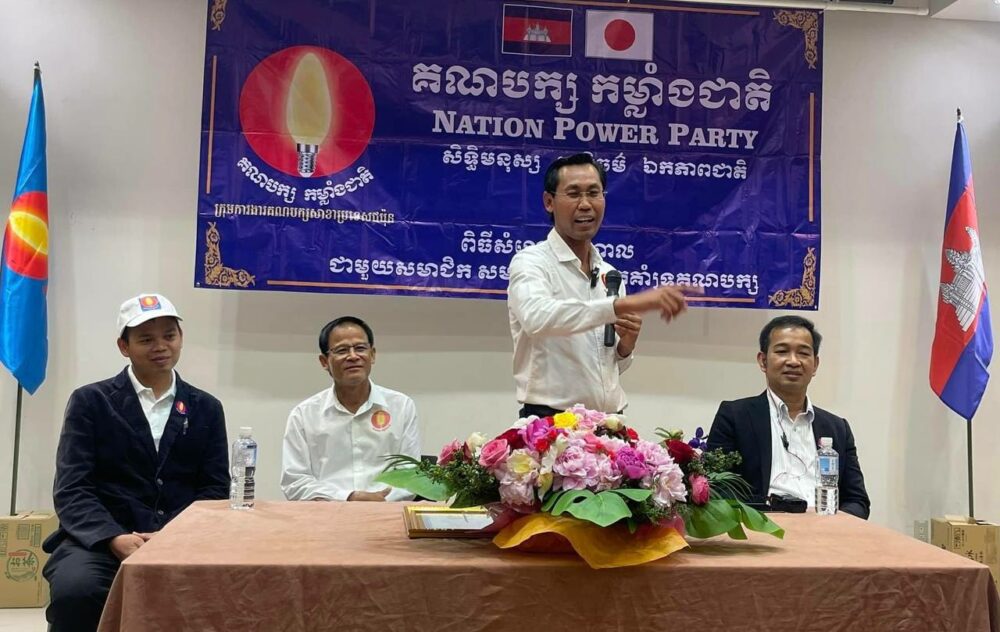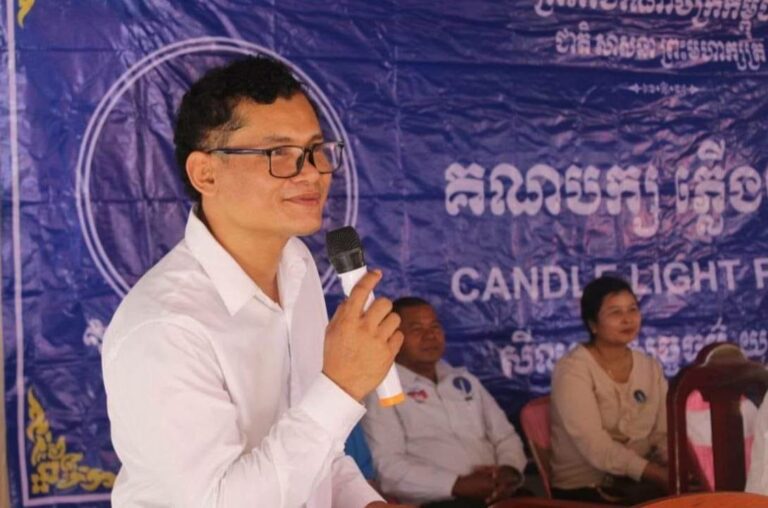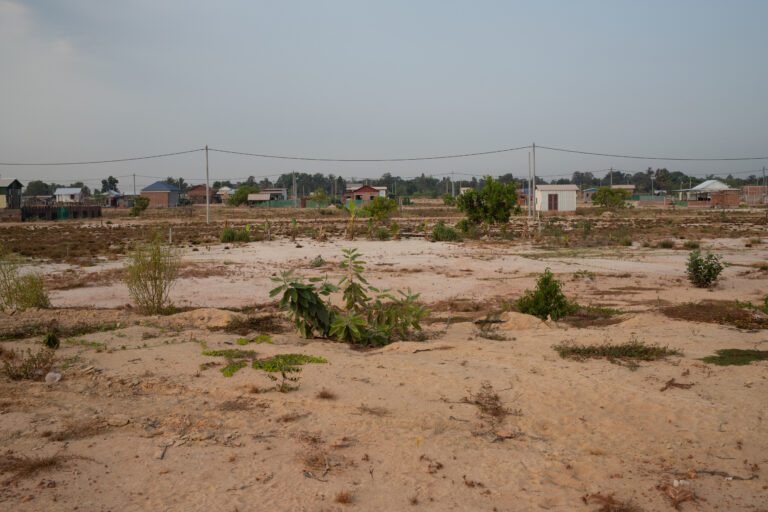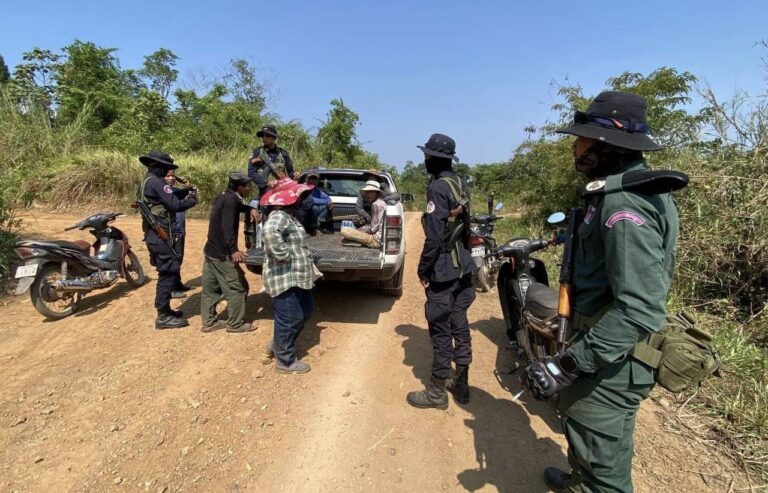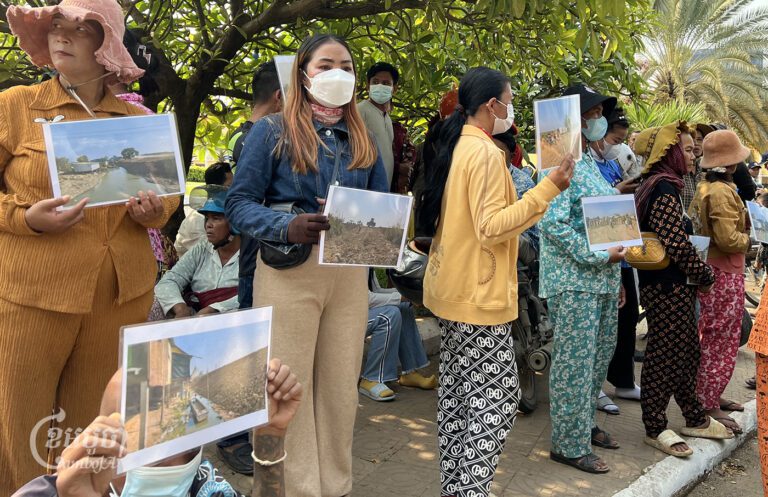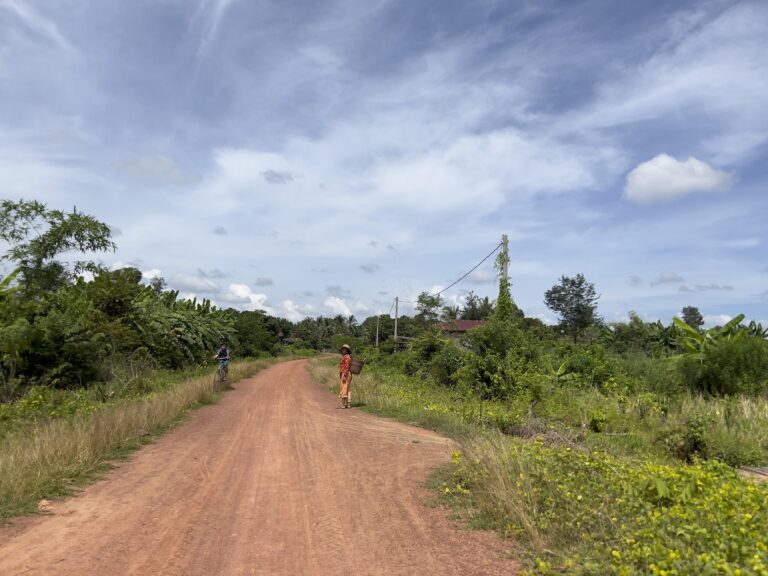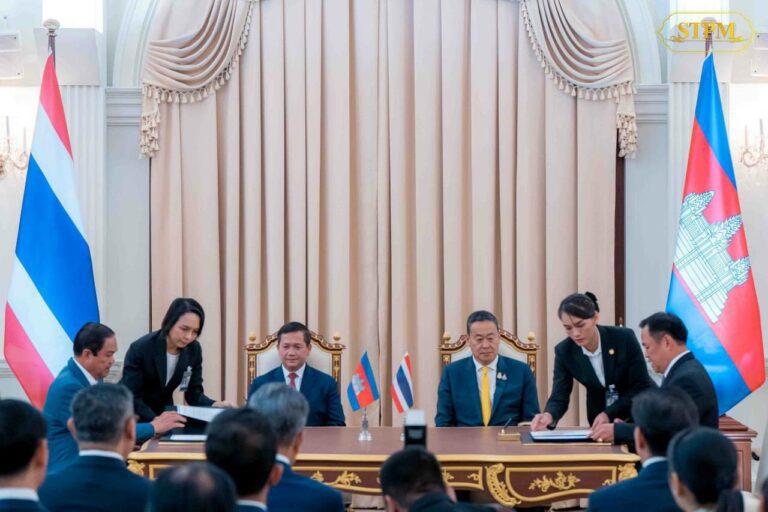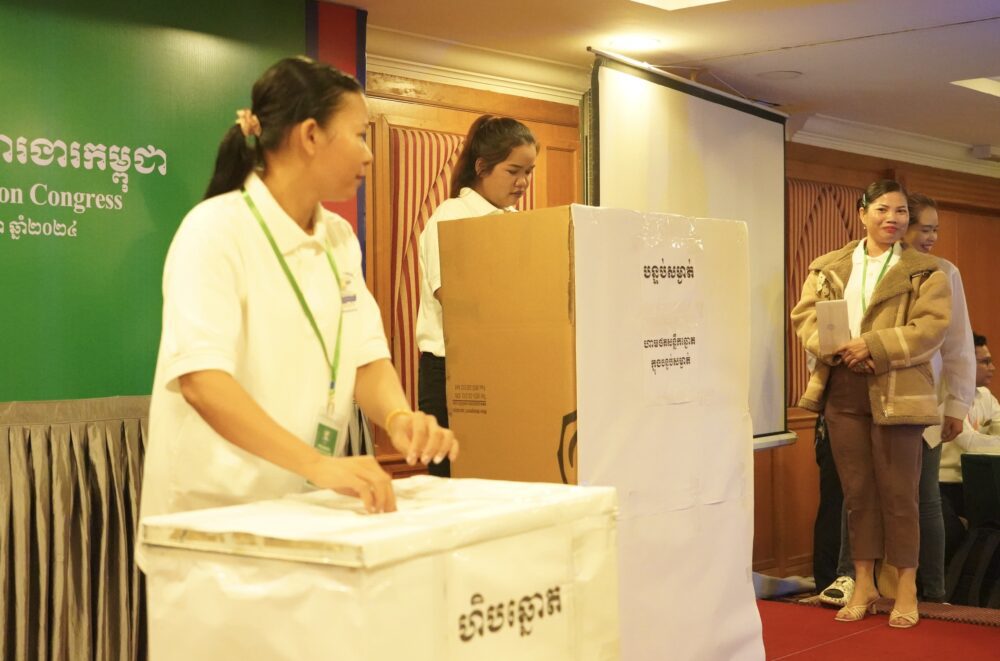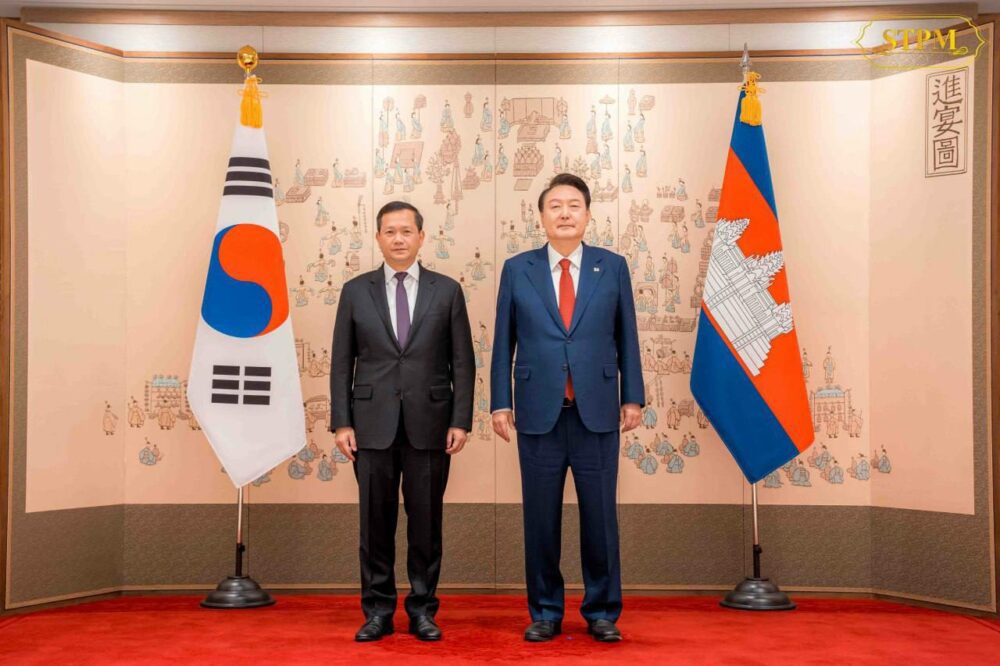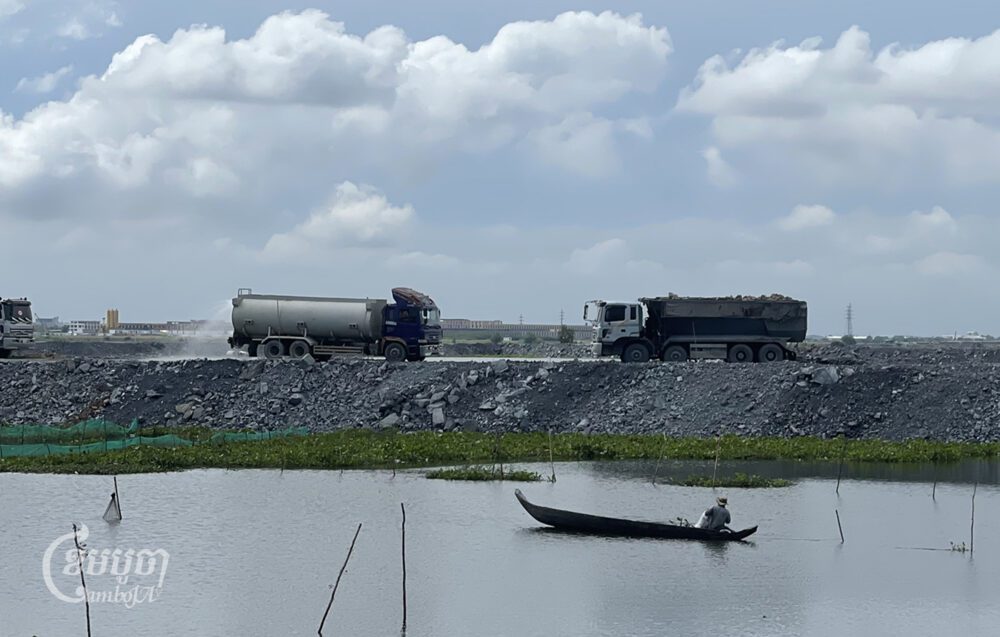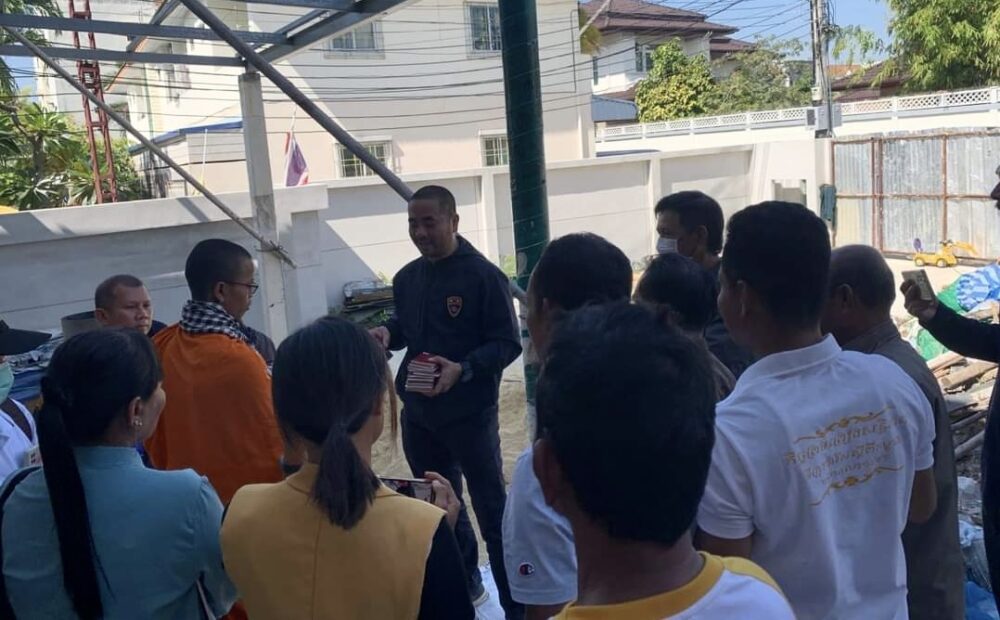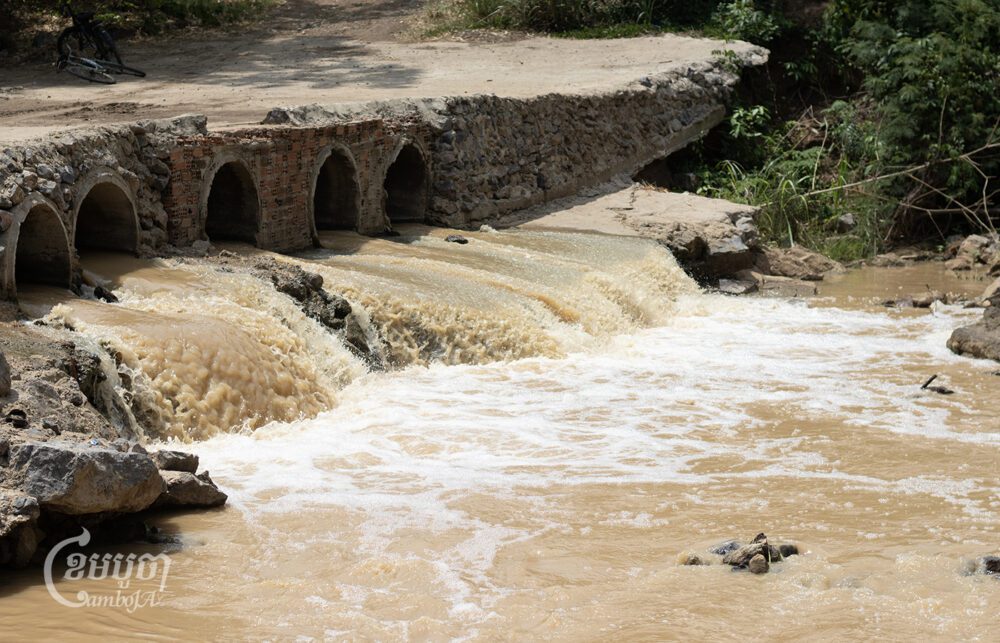On Thursday morning, Phnom Penh authorities arrested Sun Chanthy, leader of the Nation Power Party (NPP), at the Phnom Penh International Airport just as he arrived from Japan. The arrest was witnessed by his party members.
Phnom Penh Municipal Police chief Chuon Narin spoke briefly when asked to comment on Chanthy’s arrest, before referring journalists to a Phnom Penh police spokesperson. “We followed the arrest warrant. Contact my spokesperson”.
Sam Vichhika, Phnom Penh municipal police spokesperson, said an arrest warrant was issued by Phnom Penh Municipal Court prosecutor Chreung Khmao on May 7, 2024, in connection with “an incitement to disturb social order by posting information on social media”.
The warrant states that Chanthy has to be at the Phnom Penh Municipal Police before May 23, 2024 for questioning.
However, Vichhika did not specify the name of the social media account which posted the information, or where and when the said crime was committed.
“This person, named Sun Chanthy, is accused of inciting to disturb social order by posting information on social media to incite and spread false information, leading to public confusion,” said Vicheka. “It caused chaos in society.”
Phnom Penh Municipal Court spokesperson Y Rin told CamboJA News to contact the prosecutor as the case has not been sent to court. The prosecutor had only issued the arrest warrant, he said.
However, when contacted via Telegram, deputy prosecutor Plang Sophal questioned the arrest warrant, asking if the order was issued by a prosecutor or judge. He did not respond to further questions.
Meanwhile, NPP spokesperson Chea Mony said he and Chanthy had just arrived at the airport from Japan around 9am when two civil police officers ushered him into a car.
“We are trying to find out what the arrest was about. I see this arrest as more of a political issue than an arrest for another reason,” he said.
He stressed that he does not know the actual reason for the arrest because Chanthy’s case involving a five-year political ban had already ended.
Chanthy was previously sued by Candlelight Party officials in relation to an alleged fraud of more than 12 million riel (approximately $2,900) in Kampong Thom in 2023. However, the case did not result in an arrest as Chanthy had appeared in court on March 14, Mony explained.
As for Chanthy’s activities in Japan, he shared that Chanthy only spoke about the opening of a NPP branch there, the status of the Candlelight Party, and the history of NPP’s formation.
A video clip posted on NPP and Chanthy’s Facebook pages on May 7 showed him addressing supporters in Japan, where he alleged that under the “Cambodian government leadership, people owed the banks, which has forced migration in villages”, and leaving the elderly to look after young children. He said this was “common in the peace period”.
Chanthy also mentioned that “nine out of 10 people in Cambodia are in debt with the bank”, and that they have to pay two debts, “one being their own debt and the other, public debt, which is around $10 billion now”. “This would have to be paid through taxes”.
In the video, he also shared NPP’s policy, where they would “delay the repayment of bank loans for at least five years”.
“During the peace period, who does not owe money? It would be very strange [if you don’t owe money],” he said, adding that it would be “even weirder” if there were no migration during the peace period. “Yes or no, brothers and sisters?” he said during his speech to the supporters.
He also criticized the election in Cambodia, which was “without freedom and justice”, and that the dissolution of Cambodia National Rescue Party resulted in international criticism. This led to the partial removal of the EU’s Everything But Arms preferential tariff scheme, prompting several factories to shut down, which affected the lives of workers.
At the time of writing, it remains unclear what motivated the arrest, as attempts to verify with the police if there was any connection with his speech in Japan were unsuccessful.
Chanthy expressed hope that Cambodia will have a “real democracy and national unity” after the 2027-28 election.
Recall that a lawsuit was filed against Teav Vannol, Candlelight president by the government lawyer. The lawsuit accused Vannol of “impairing the image of the head of the Cambodian government” in an interview with Japan’s Nikkei Asia in early February.
On Thursday afternoon, the NPP issued a statement condemning their chairman’s arrest, which they called a “threat, intimidation and serious persecution” of the NPP and that it will seriously affect the democratic process in Cambodia.
The party called on the government to release Chanthy unconditionally and allow the NPP to freely exercise its political right and freedom so that it can contribute to the democratic process in Cambodia.
Meanwhile, Interior Ministry spokesperson Touch Sokhak said allegations by analysts and opposition parties that the arrests of activists and political leaders were politically motivated “did not contain scientific evidence”.
He said it was common for them to spin criminal cases into political ones to ease the situation and place the burden on the Cambodian government.
“Do not turn it into a negative [issue] to reduce [your] fault, [and] put it on the government, the authorities or the court to confuse [people]. You should recognize that what you are doing is at the level of a criminal offense,” he said.
Am Sam Ath, operations director of rights group Licadho, said according to observations by civil society groups, arrests and detentions of political activists and unions often precede political elections.
He hoped that politicians will put national interest first and have resolutions based on the principles of democracy that Cambodia has adopted.
“I understand that we, as civil society organizations, want to see politicians promote national interests and put people’s interests first, resolve [issues] peacefully and uphold the principles of multi-party liberal democracy which Cambodia has adopted,” he said.


